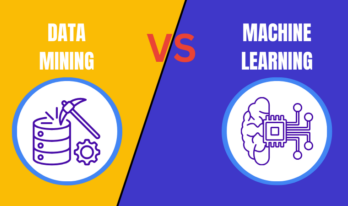Although virtualization is still the most prominent technology in the cloud market, containerization also addresses the need for hosting business, web, and mobile applications.
The adoption of these solutions seems to be shared with business CIOs.
However, the differences between container technologies such as Docker and Virtual Machines are enormous, both conceptually and in practice.
To help you understand how Virtual Machines and Container technologies work, we've prepared this article in which we will briefly review both technologies to see what they are and will understand their differences as well.
Docker: What is it and what are its benefits?
Docker consists of an Open-Source platform developed in Go, which is a programming language developed by Google that simplifies the creation and administration of isolated environments.
Unlike server virtualization, which corresponds to the total isolation of an operating system, Docker performs isolation using common kernel libraries between the host and the container.
Thus, Docker groups pieces of software from a complete file system and that covers all the resources required for its execution. That's why it's a container platform.
This means that everything can be installed on the server and stored in the containers. In this way, the same software and its versions can be easily executed in any development environment.
Docker provides a way to standardize the application package by performing packaging inside a container so that the environment becomes portable to any other host that has Docker already installed.
Container framework, such as Docker itself, for example, includes application code, system tools, runtime, and shared libraries with the host.
Three main benefits of using containers:
- Containers can run directly on a physical (bare-metal) server, thus avoiding the allocation and consumption of resources associated with virtual servers.
In this way, the containers running directly on the physical server tend to ensure lower latency and high performance.
- Due to its lower resource consumption, a physical server can host a larger number of containers, thus increasing its utilization.
- Container utilization will bring great agility and flexibility to IT as developers will be able to "bundle" application dependencies with the host, making it consistent during an application portability process between development, approval, and production environments.
Due to all the facilities it offers, the container is one of the main IT trends. It simplifies the application of the DevOps methodology and facilitates agile development, so much so that Google has been using this technology for more than 10 years.
Virtual Machine: What is it and what are its benefits?
Machine virtualization consists of packaging a particular application into a standard model with its own operating environment.
So now regardless of the machine, you are running this application your settings will be the same from the OS level to the necessary libraries and dependencies.
Having a Virtual Machine means that a virtual hard disk was created within a physical environment by means of specific software and operates independently of it.
Having one hardware inside another makes it possible to run operating systems and all kinds of programs.
This is one of the great advantages of having a Virtual Machine since you can use the applications and programs you need without depending on the operating system you have on the physical disk.
Because you can create a different virtual environment within the existing one, you are free to use all the programs you need on the same machine.
The virtualization allows, via a hypervisor, to simulate one or more physical machines and run them as virtual machines (VMs) on a server. Each virtual machine has an OS on which the applications they support are run.
Among the virtualization technologies, VMWare, Xen, and KVM rank among the most popular and commonly used.
Another benefit of virtual machines is that the isolation of resources allows the Virtual Machine to "trick" the software, which does not detect that it is active because it is not running on a physical system.
As there is no interaction between physical and virtual actuation, this dynamic allows the original resources, which do not belong to the virtual machine, to be spared.
Without having to create partitions in the hard disk to run multiple systems, the physical hard disk remains intact and you can test and create in the virtual environment without worrying about running out of your device's resources.
When you need to move your Virtual Machine between devices or want to make a backup, the process is also simple and fast, which saves the teamwork and speeds it up.
Docker vs. Virtual Machine: Understand the Difference Between the two
Almost all high-tech companies invest in containers. Google, of course. IBM and Microsoft too, certainly. But it's not because containers are so popular that virtual machines are out of date.
This is indeed far from the case.
An operating system can occupy from little less than 1 GB for some distributions of Linux with the minimum necessary, up to more than 10 GB in the case of a complete Windows system.
In addition, these operating systems, require a minimum of reserved RAM to operate, which can range up to several GB of memory, depending on our needs.
Therefore, containers are much lighter than virtual machines.
On the other hand, Docker does not allow containers/applications that are not for the same operating system to be used in a "host" operating system.
That is, we cannot run a container with an application for Linux on Windows or the other way around. This can be an impediment on some occasions.
Conclusing Docker vs. Virtual Machine
Containers allow you to deploy applications faster and take better advantage of hardware resources. Virtual machines allow us to create completely isolated systems, with greater control over the environment and mixing host and guest’s operating systems.
Each technology has its applications and its advantages according to the needs and circumstances of each development.
Currently, containers in general and that too Docker, in particular, are becoming indispensable, not only to deploy applications in production but also to create replicable development environments among all the members of a team.
But if you have a variety of operating systems and need to run multiple applications on servers and if security is the number one priority of your business, it's best to choose virtual machines over containers.
You may also like to Read:
7 ways in which storage virtualization can boost your business
Data Warehouse vs. Data Mart: What’s the Difference?




